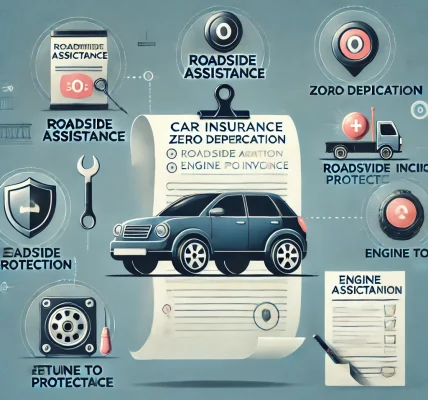When it comes to saving money on insurance, many providers offer bundling options that allow policyholders to combine multiple insurance policies—such as car, home, renters, and life insurance—under a single provider. Bundling can provide convenience, cost savings, and added benefits, but it may not always be the best choice for every policyholder.
In this comprehensive guide, we will explore the pros and cons of bundling car insurance with other policies to help you determine whether it’s the right decision for you.
What is Insurance Bundling?
Insurance bundling refers to purchasing multiple insurance policies from the same provider, often at a discounted rate. For example, a person who buys car insurance and home insurance from the same company may receive a discount on both policies. This strategy is widely promoted by insurance companies as a way to retain customers and simplify policy management.
Pros of Bundling Car Insurance with Other Policies
1. Cost Savings
One of the most significant advantages of bundling is the potential for cost savings. Many insurance providers offer discounts for customers who bundle multiple policies, which can result in lower overall premiums.
How It Saves Money:
- Insurance companies reward customer loyalty with discounts.
- Discounts typically range from 10% to 25%, depending on the provider.
- Reduces administrative fees associated with multiple policies.
2. Simplified Policy Management
Bundling insurance policies makes managing policies easier since you’ll be dealing with a single insurance company. This means:
- One bill instead of multiple separate payments.
- A single point of contact for customer service and claims.
- Less paperwork and fewer policy renewal dates to track.
3. Potential for Additional Perks and Benefits
Some insurance companies provide additional perks when policies are bundled, such as:
- Higher coverage limits for the same price.
- Waived or reduced deductibles in certain situations.
- Priority customer service for bundled policyholders.
4. Improved Claim Process
Having all policies with one provider may lead to a smoother claims process. If you need to file multiple claims (e.g., car damage from a home-related event), having one insurer handle all claims can streamline the process.
5. Increased Loyalty Rewards
Many insurance companies offer better renewal rates and additional discounts for long-term customers who bundle policies. Staying with the same provider for an extended period can result in continued savings over time.
Cons of Bundling Car Insurance with Other Policies
1. Not Always the Cheapest Option
Although bundling often results in discounts, it is not always the most cost-effective option. In some cases, you may find better individual policy rates by shopping around with different insurers.
Example:
- Your home insurance provider may offer a lower bundling discount compared to a standalone car insurance policy from a competitor.
- Some insurers specialize in certain types of insurance and may offer better rates for specific policies outside of bundling deals.
2. Less Flexibility in Coverage Options
When bundling, you may have limited options for customizing coverage, especially if the provider does not specialize in a particular type of insurance. This can lead to:
- Paying for unnecessary coverage.
- Difficulty in adjusting policy details to suit specific needs.
- Limited options for higher-risk drivers or specialized vehicles.
3. Higher Renewal Rates Over Time
Insurance companies often attract customers with initial discounts on bundled policies, but premiums may gradually increase over time. Some policyholders may not notice gradual price hikes and end up paying more than if they had chosen separate policies from different providers.
4. Cancellation Challenges
If you decide to cancel one of your bundled policies (e.g., switching home insurance providers), it may affect the discounts on your other policies. This can result in unexpected price increases and additional fees for breaking a bundled agreement.
5. Not All Providers Offer Equal Discounts
Not all insurance companies provide significant discounts for bundling, and some providers may not offer bundling options for certain types of policies. If your insurer does not provide a competitive discount, bundling may not be worthwhile.
When Should You Consider Bundling?
Bundling May Be Right for You If:
✔ You prefer managing all your policies in one place. ✔ The discount offered is significant and leads to real savings. ✔ Your current provider offers strong coverage options for all policies. ✔ You value convenience over shopping for separate policies. ✔ You have a good claims experience with your current insurer.
Bundling May Not Be Right for You If:
❌ You find cheaper standalone policies from different providers. ❌ You require specialized coverage that your bundled provider does not offer. ❌ You anticipate needing to switch policies frequently. ❌ The bundling discount is too small to justify combining policies.
How to Get the Best Deal on Bundled Insurance Policies
If you’re considering bundling, follow these steps to ensure you get the best deal:
1. Compare Quotes from Multiple Providers
Even if your current insurer offers a bundling discount, check quotes from other providers to ensure you’re getting the best price.
2. Ask About Discounts and Hidden Fees
Some insurers offer additional discounts for safe drivers, good credit scores, and anti-theft devices. Ask about all potential savings and hidden fees before making a decision.
3. Check Coverage Options Carefully
Make sure that bundling does not force you into unnecessary coverage. Read the policy details and ensure it meets your specific needs.
4. Review Your Policy Annually
Insurance needs change over time. Reassess your coverage every year to determine whether bundling is still beneficial.
5. Consider Customer Service and Claims Handling
A low premium is not the only factor to consider—customer service and claims satisfaction are equally important. Read reviews and check the insurer’s reputation before bundling.
Final Thoughts
Bundling car insurance with other policies can be a smart financial move if it leads to significant savings, simplifies policy management, and provides additional benefits. However, it is not always the best choice for every driver. Weigh the pros and cons carefully, compare quotes from multiple insurers, and ensure that you are not sacrificing better coverage or lower rates for the sake of convenience.
By taking the time to research and evaluate your options, you can make an informed decision that best fits your financial situation and insurance needs.



